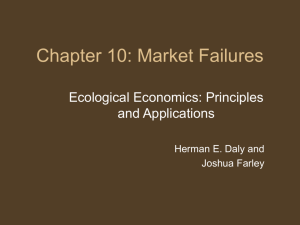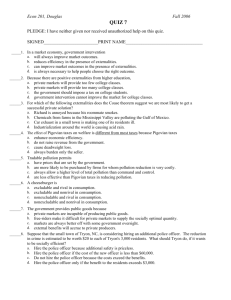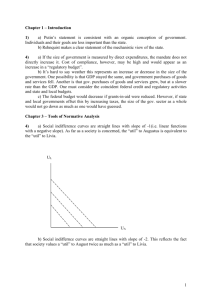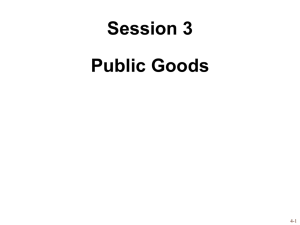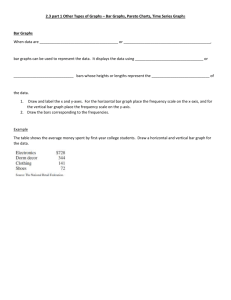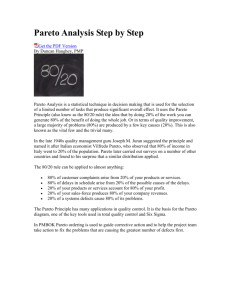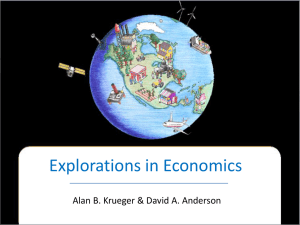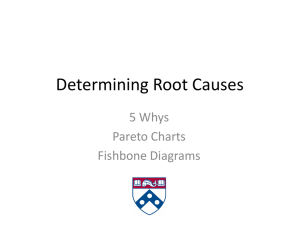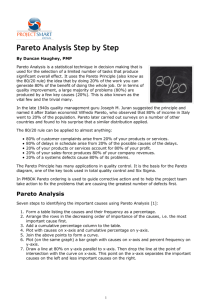REVIEW QUESTIONS
advertisement
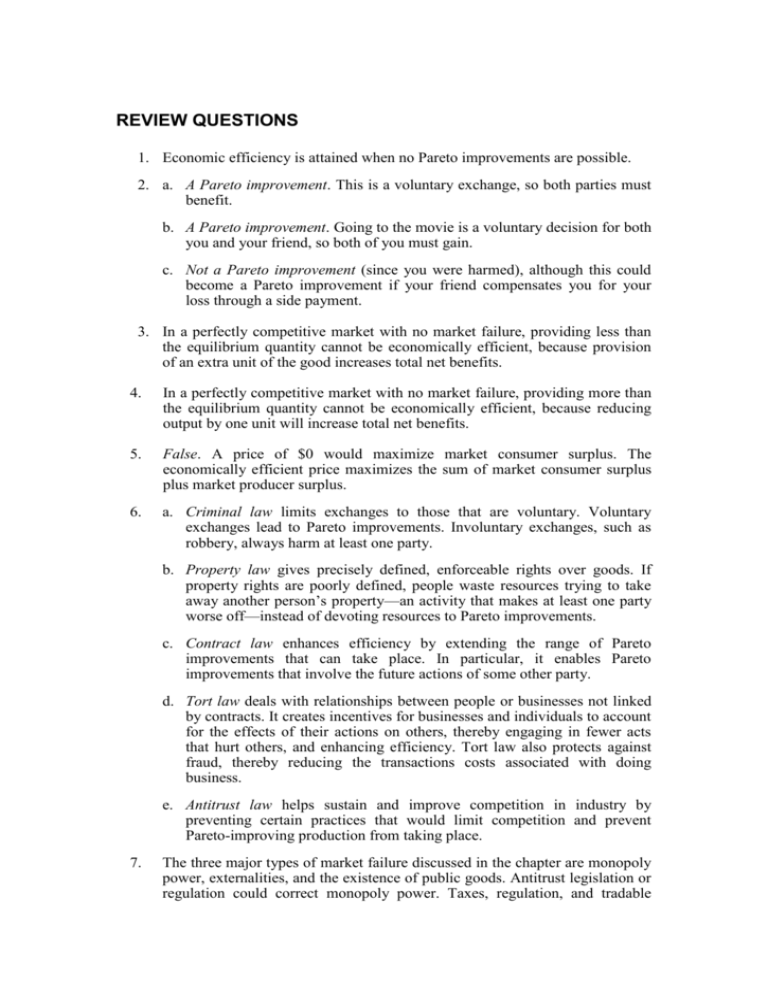
REVIEW QUESTIONS 1. Economic efficiency is attained when no Pareto improvements are possible. 2. a. A Pareto improvement. This is a voluntary exchange, so both parties must benefit. b. A Pareto improvement. Going to the movie is a voluntary decision for both you and your friend, so both of you must gain. c. Not a Pareto improvement (since you were harmed), although this could become a Pareto improvement if your friend compensates you for your loss through a side payment. 3. In a perfectly competitive market with no market failure, providing less than the equilibrium quantity cannot be economically efficient, because provision of an extra unit of the good increases total net benefits. 4. In a perfectly competitive market with no market failure, providing more than the equilibrium quantity cannot be economically efficient, because reducing output by one unit will increase total net benefits. 5. False. A price of $0 would maximize market consumer surplus. The economically efficient price maximizes the sum of market consumer surplus plus market producer surplus. 6. a. Criminal law limits exchanges to those that are voluntary. Voluntary exchanges lead to Pareto improvements. Involuntary exchanges, such as robbery, always harm at least one party. b. Property law gives precisely defined, enforceable rights over goods. If property rights are poorly defined, people waste resources trying to take away another person’s property—an activity that makes at least one party worse off—instead of devoting resources to Pareto improvements. c. Contract law enhances efficiency by extending the range of Pareto improvements that can take place. In particular, it enables Pareto improvements that involve the future actions of some other party. d. Tort law deals with relationships between people or businesses not linked by contracts. It creates incentives for businesses and individuals to account for the effects of their actions on others, thereby engaging in fewer acts that hurt others, and enhancing efficiency. Tort law also protects against fraud, thereby reducing the transactions costs associated with doing business. e. Antitrust law helps sustain and improve competition in industry by preventing certain practices that would limit competition and prevent Pareto-improving production from taking place. 7. The three major types of market failure discussed in the chapter are monopoly power, externalities, and the existence of public goods. Antitrust legislation or regulation could correct monopoly power. Taxes, regulation, and tradable permits could correct externalities. Government provision of public goods could correct the failure of markets to provide these goods. 8. The Coase theorem addresses market failure due to externalities. When side payments can be negotiated and arranged without cost, the private market will solve the externality problem on its own. 9. In the case of negative externalities, if the free rider problem is extensive enough, it can shrink the side payment to losers until it isn’t large enough to compensate losers and still leave the gainers better off. In that case, the private arrangement will break down and the efficient outcome will not be achieved. In the case of positive externalities, the free rider problem keeps individuals from voluntarily making side payments to provide a good to strangers. Again, if it is extensive enough, side payments won’t be large enough to provide the good in efficient quantities. 10. Marginal cost measures the cost to the producer of producing another unit of a good, while marginal social cost measures the full cost of producing another unit of a good, including the marginal cost to the producer and any harm caused to third parties. 11. The Coase theorem does not apply to most cases of air pollution because of the large number of people involved—it is very costly to determine the gains and losses for each one, get them all together, and then develop a solution that would please everyone. 12. A pure public good is one that is nonrival—consumption by one person does not affect the amount available to be consumed by others—and nonexcludable—there is no way to force consumers to pay for the good. A pure private good, by contrast, is rival and excludable. 13. a. Breakfast at a coffee shop: mostly excludable; mostly rival b. Medical care to treat a highly contagious disease: mostly excludable (although considerable benefits also accrue to the population at large which is less likely to catch the disease); mostly nonrival c. Efforts to maintain homeland security: mostly nonexcludable; mostly nonrival d. A movie shown in a theater with mostly empty seats: mostly excludable; mostly nonrival e. Teaching young children not to steal: mostly nonexcludable (most of the benefits accrue to others who do not “pay” by taking the time to teach their children not to steal); mostly nonrival

